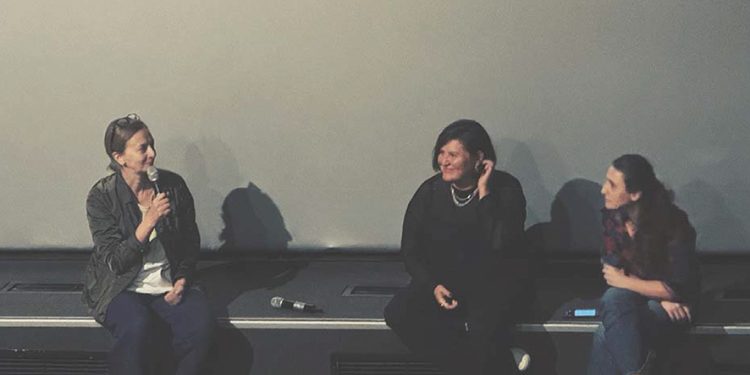On September 16, DOCA Film Club opened its new season at Amirani Cinema in Tbilisi with a thought-provoking double feature that foregrounded intimate explorations of memory, collaboration, and identity. The two Georgian films, ‘It Will Be Better Before’ by Keto Kipiani and ‘Ever Since I Knew Myself’ by Maka Gogaladze, share an underlying concern with the passage of time, the malleability of perspective, and the ways in which personal narratives are constructed and reconstructed through the lens of filmmaking. Both films, though different in approach, emphasize the central role of filmmaking as a means of reflecting on the self, with the camera serving not merely as an observer, but as a medium for dialogue between the filmmaker, their subjects, and the audience.
‘It Will Be Better Before’ – A Reflection on Artistic Collaboration and Personal Expression
Keto Kipiani’s ‘It Will Be Better Before’ presents itself as an almost confessional personal essay film that is less about telling a linear story and more about revealing the tensions and complexities that arise within the collaborative filmmaking process. The film’s origins as a joint project between two directors mark it as a meta-commentary on the fluidity of creative ownership. The five-year gap between the film’s initial conception and its final iteration—re-edited secretly by one of the directors—introduces a layer of emotional complexity that challenges our conventional understanding of collaboration.
The film stands as a visual manifesto of control and artistic self-realization. By re-editing the film without the other director’s knowledge, Kipiani taps into an inherent desire to reclaim personal authorship. The fragmented narrative and visual choices in the final cut create a feeling of dislocation, offering a direct parallel to the shifting relationships between the co-creators. In many ways, the film becomes a dialogue with itself, with the new editor both engaging with and challenging the earlier version of the film.
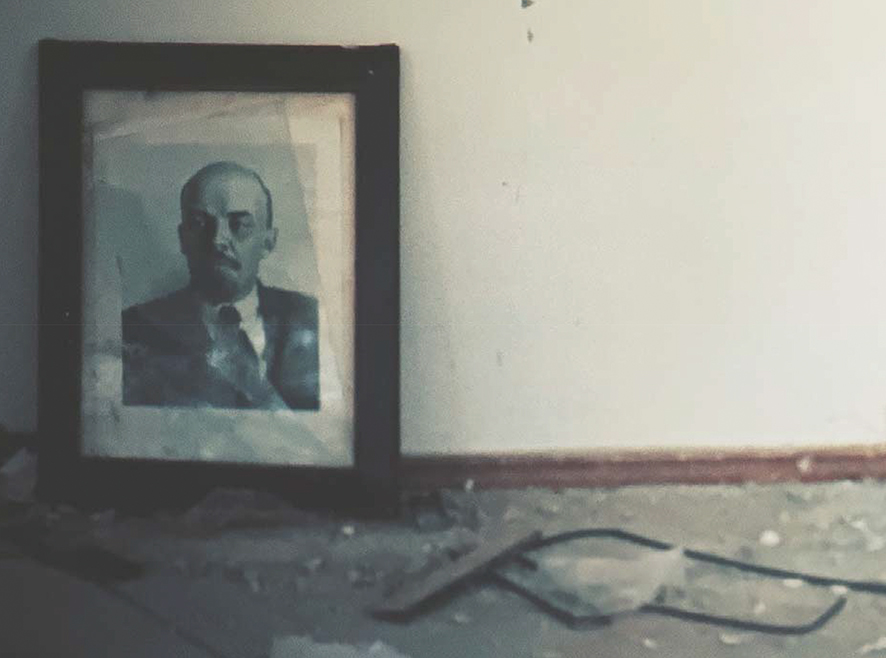
Kipiani’s use of the essay film format lends itself to a process of personal catharsis. In this way, the final product resembles more of a diary entry, an unfolding confession, than a finished narrative. It reflects on how artistic projects evolve, often diverging from their original intentions, shaped by the emotional and intellectual growth of their creators. As the camera lingers on moments of seemingly banal abandoned and natural landscape, intercut with intimate narration, the viewer is drawn into an almost voyeuristic relationship with the filmmaker’s psyche, watching her emotional arc unfold in real-time. The film embodies the impermanence of artistic visions, suggesting that creation itself is not fixed but an evolving negotiation of identity, collaboration, and power.
‘Ever Since I Knew Myself’ – Identity Formation Through Memory and Education
If Kipiani’s film looks inward, into the intricacies of collaboration and personal creative struggle, Maka Gogaladze’s ‘Ever Since I Knew Myself’ takes us on an outward journey, exploring identity through intergenerational dialogue and the educational spaces that form Georgian youth. Gogaladze’s film centers on her conversation with her mother, a dialogue that frames the dualities of memory and identity. This personal narrative is juxtaposed with her observations of children across Georgia as they engage in the arts and education, making the film not only an exploration of the self but also an inquiry into how identity is shaped by social and educational forces.
Gogaladze’s use of time as both a narrative and thematic device becomes central to the film’s structure. The conversation with her mother anchors the film in two temporalities: the past, as recalled through childhood memories, and the present, as these memories are revisited and reconstructed. The film becomes a time-traveling experience where personal recollections interact with the social realities of Georgian educational systems. By transitioning between personal memories and the observational scenes of children learning music, dance, and art, Gogaladze underscores the importance of cultural continuity and change, drawing attention to how these systems shape the identities of future generations.
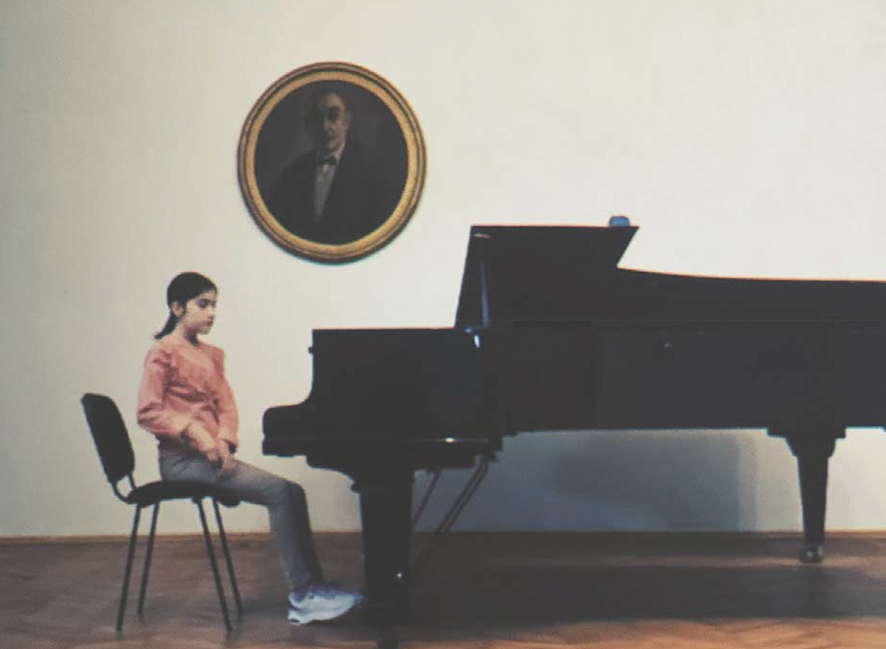
The film’s observational style is reminiscent of Frederick Wiseman’s documentary approach, where the camera quietly observes without overt intervention, allowing the audience to draw their own conclusions about the environments being presented. The children, immersed in creative activities, become symbols of a cultural lineage in which Gogaladze herself is embedded, connecting her own journey with that of Georgia’s evolving educational system. In this context, the film speaks not only to the shaping of the individual but also to the role that art and education play in the formation of national and cultural identity and use of authoritarian approach in education.
Moreover, the film’s contemplative pacing allows space for reflection, both on the part of the filmmaker and the audience. The process of observing children learning creative disciplines becomes an allegory for the ways in which our identities are continually formed and re-formed through engagement with the world around us. This examination of childhood education offers a critique of the ways in which systems of knowledge and culture are passed down, raising questions about the forces that influence the trajectory of our lives.
Cinematographic Techniques: Intimacy and Distance
Both films make striking use of cinematographic techniques to enhance their themes of intimacy and identity. In ‘It Will Be Better Before,’ the handheld camera work and grainy footage heighten the sense of emotional rawness and immediacy, as if the viewer is witnessing a deeply personal process of self-examination. Kipiani employs jump cuts and disjointed editing, mirroring the fragmented nature of her collaboration and the eventual rupture between the two directors. The viewer is left piecing together a narrative that is as much about what is unseen and unsaid as it is about what is on screen.
In contrast, Gogaladze’s observational style in ‘Ever Since I Knew Myself’ is marked by long, steady takes that create a sense of temporal fluidity. The camera lingers on the children as they move through educational spaces, giving the audience time to absorb the significance of each gesture and interaction. The film’s measured pacing allows it to act as a meditation on time and growth, underscoring the slow, often invisible process of identity formation.
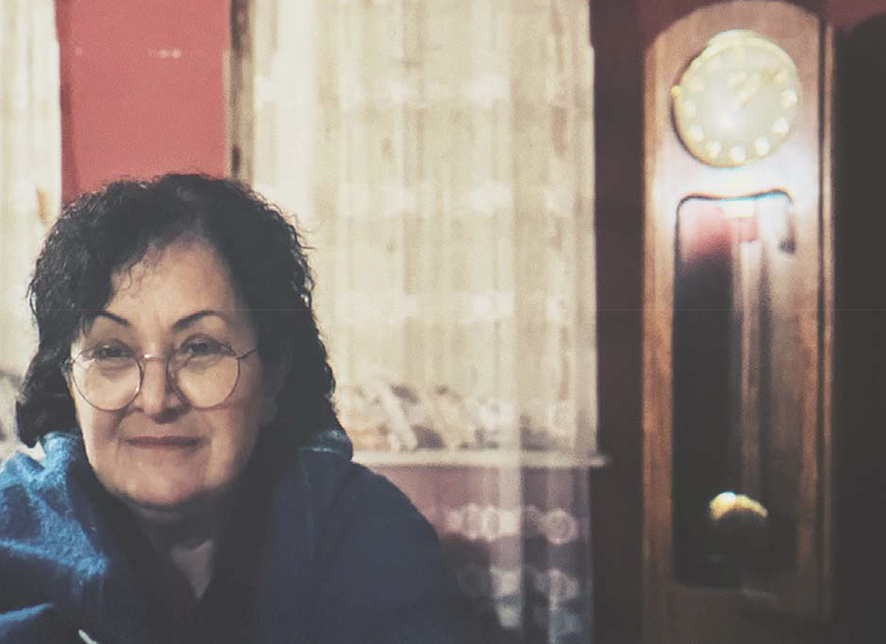
Personal and Collective Identity
Both films challenge the audience to reconsider the ways in which identity is formed, whether through the act of artistic creation, personal memory, or the social structures that shape us. Kipiani’s ‘It Will Be Better Before’ is a study in the personal and the private, drawing the viewer into the mind of the artist as she grapples with the complexities of collaboration and authorship. In contrast, Gogaladze’s ‘Ever Since I Knew Myself’ offers a more expansive view, situating personal identity within the broader context of cultural and educational systems.
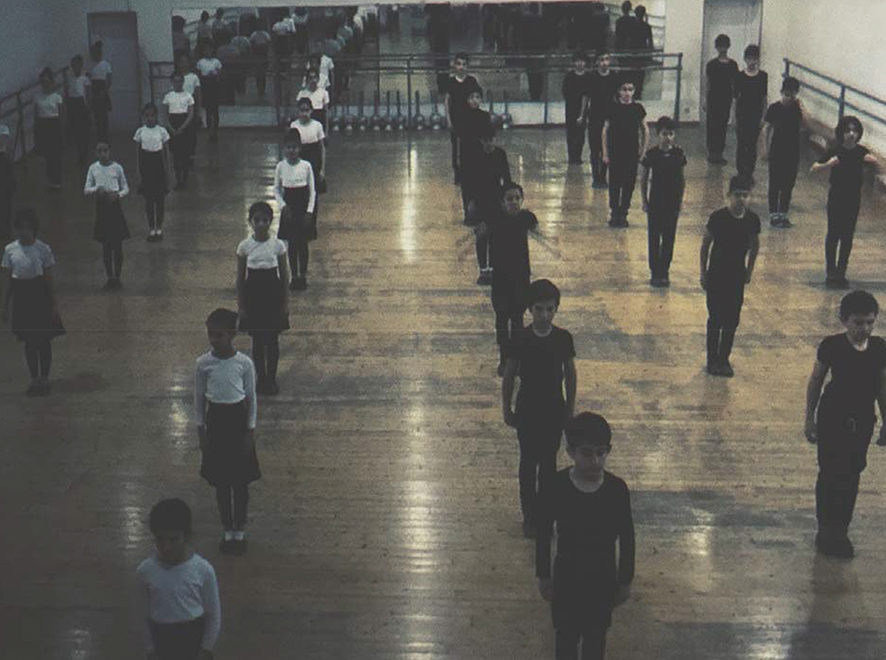
Together, the films presented at DOCA Film Club’s season opening invite a deeper reflection on how cinema itself functions as both a mirror and a window—reflecting the inner life of its creators while offering insights into the external forces that shape our identities. The Q&A sessions that followed screenings provided an opportunity to engage with the filmmakers directly, adding another layer of interpretation and meaning to these already deeply personal works. As the new season of DOCA Film Club begins, these two films set a powerful tone for the cinematic explorations to come: films that challenge, provoke, and inspire reflection on the connections between self, society, and the art of filmmaking.
By Ivan Nechaev

